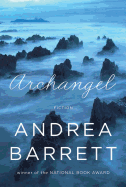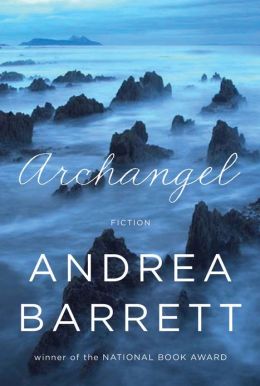 Andrea Barrett, a National Book Award winner for the short story collection Ship Fever, once again navigates the wonders of science in Archangel--a magnificent book that explores five decisive moments in the lives of her characters that have an impact not only on them but also on the advancement of human knowledge.
Andrea Barrett, a National Book Award winner for the short story collection Ship Fever, once again navigates the wonders of science in Archangel--a magnificent book that explores five decisive moments in the lives of her characters that have an impact not only on them but also on the advancement of human knowledge.
"The Eclipse" is set during the summer of 1908, when 12-year-old Constantine Boyd is sent to live with an uncle who is an experimenter--with crops, fish that live in caves, bicycles with motors and an early aeroplane. The boy would like nothing better than to stay there forever, away from his angry father, but his uncle tells him that he is needed at home.
In "The Ether of Space," in 1920, a popular science writer and young widow struggles with the new theory of relativity. She listens to Sir Oliver Lodge, a (real) noted physicist and spiritualist of the day. "All are eager for trustworthy information about both the material and spiritual worlds, which together constitute the universe," Sir Oliver says. "The ether of space is the connecting link." He believed this ether was also the connection through which communication with his deceased son took place. But, if Einstein's theory was correct, no such ether was necessary to explain the physical world.
In "The Particles," several young men, sometimes friends and sometimes not, study genetics by observing fruit flies. A famous biologist struggles to keep his reputation intact in order not to be discredited in the eyes of his students as he fights against Darwin's theory of evolution in "The Island." Then, in the last story, "Archangel," Constantine Boyd, a decade older, is now a young U.S. soldier in Russia, wondering about his government's intentions. A bomb blast drives a bone from his friend's body into his leg; the pain is wearing him out and no one is willing to help. What he does to get their attention is dangerous, foolhardy--and just might work.
Barrett combines fact and fiction in scenarios that bring the reader to a better understanding of the high cost, both personal and public, of scientific advances. For all that is gained, a great deal is lost: reputations, long-held beliefs, years of research. Her own scientific knowledge illuminates these complex questions and discoveries without sacrificing character or story. --Valerie Ryan
Shelf Talker: Andrea Barrett puts a human face on scientific discovery and monumental changes for individuals and society.
 In what is the first agreement of its kind with a national bookstore chain, On Demand Books is installing an Espresso Book Machine in the Books-A-Million store in Portland, Maine, the first Espresso Book Machine in Maine. A second Espresso will be installed in another BAM store, whose location will be announced later. Most Espresso POD machines are located in independent or college bookstores and libraries.
In what is the first agreement of its kind with a national bookstore chain, On Demand Books is installing an Espresso Book Machine in the Books-A-Million store in Portland, Maine, the first Espresso Book Machine in Maine. A second Espresso will be installed in another BAM store, whose location will be announced later. Most Espresso POD machines are located in independent or college bookstores and libraries.













 The
The 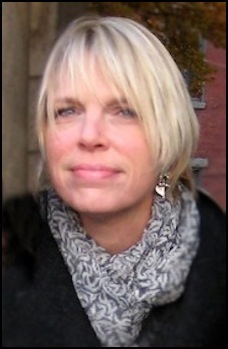 Susan Savory, who until last month was children's book buyer and coordinator of children's events at
Susan Savory, who until last month was children's book buyer and coordinator of children's events at 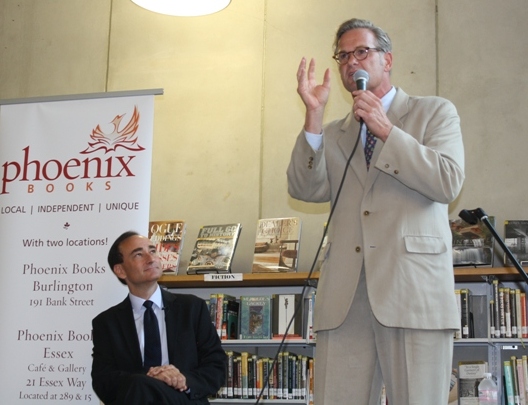
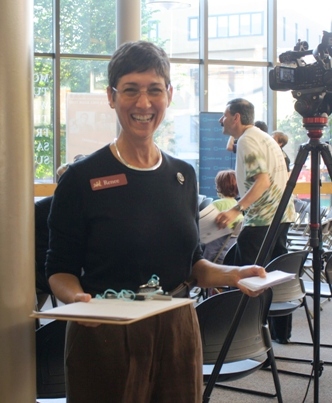
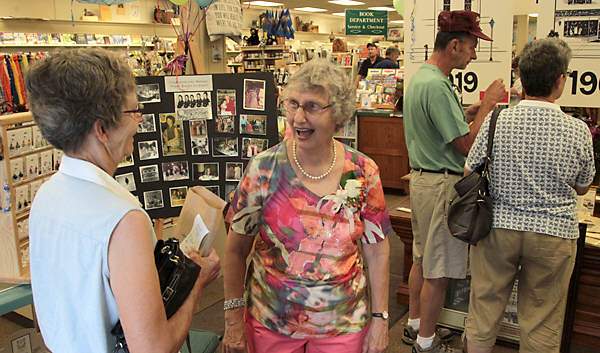
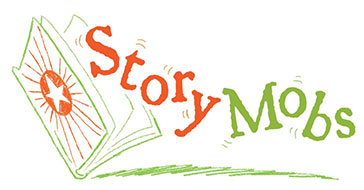 Last Saturday, Nathan Phillips Square in Toronto "turned into a wild rumpus, thanks to the inaugural
Last Saturday, Nathan Phillips Square in Toronto "turned into a wild rumpus, thanks to the inaugural  "When we visit big cities, we want to see what makes the town special.... But to really understand the spirit of a city,
"When we visit big cities, we want to see what makes the town special.... But to really understand the spirit of a city, 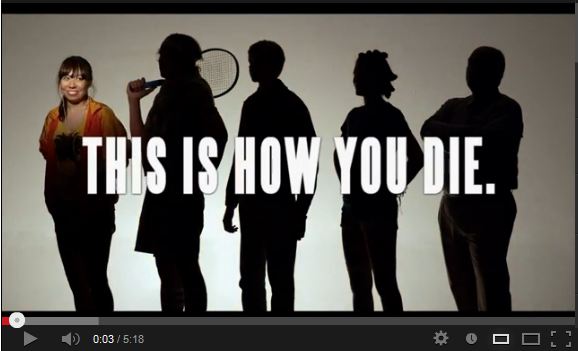 This Is How You Die: Stories of the Inscrutable, Infallible, Inescapable Machine of Death
This Is How You Die: Stories of the Inscrutable, Infallible, Inescapable Machine of Death Andrea Barrett, a National Book Award winner for the short story collection Ship Fever, once again navigates the wonders of science in Archangel--a magnificent book that explores five decisive moments in the lives of her characters that have an impact not only on them but also on the advancement of human knowledge.
Andrea Barrett, a National Book Award winner for the short story collection Ship Fever, once again navigates the wonders of science in Archangel--a magnificent book that explores five decisive moments in the lives of her characters that have an impact not only on them but also on the advancement of human knowledge.